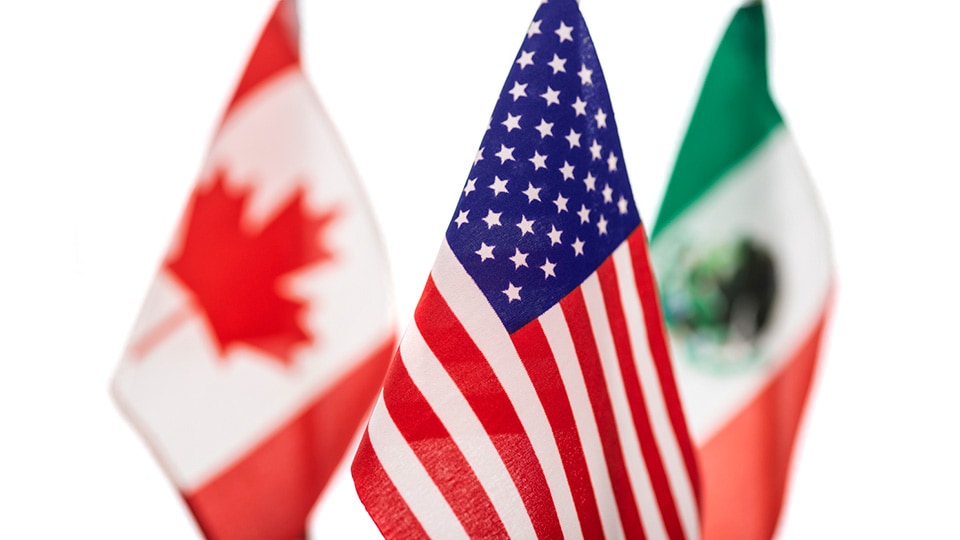Recent US Tariffs Developments
New Tariffs on Steel and Aluminum Imports Effective March 12, 2025
Effective March 12, 2025, the U.S. government will impose a 25% tariff on all steel and aluminum imports. This move aims to protect the U.S. steel and aluminum industries from unfair trade practices and global excess capacity.
Here are some key specifics about the tariff changes:
- The tariffs on both steel and aluminum imports will be set at 25%.
- This applies not only to steel and aluminum imports from countries subject to Sec. 232 tariffs since 2018 but also to those previously exempt, including Argentina, Australia, Brazil, Canada, the EU, Japan, Mexico, South Korea, Ukraine, and the United Kingdom.
- Imports of steel from Turkey will remain subject to a 50% tariff.
- Imports of aluminum from Russia will be subject to a 200% tariff.
- The tariffs apply to certain derivative products made from steel and aluminum. Starting March 12, 2025, additional derivative steel and aluminum articles will also be subject to tariffs. For a full list of these newly added classifications, please visit the Federal Register Notice for Imports of Aluminum and Steel. The tariffs apply unless the steel was melted and poured in the U.S. or the aluminum was smelted and cast in the U.S.
- Importers of derivative steel and aluminum articles must provide necessary documentation to U.S. Customs and Border Protection (CBP) to verify steel/aluminum content origin.
- We are still awaiting direction from CBP on what the appropriate documentation consists of and how to submit it.
- If a derivative steel article does not fall under Chapter 73 of the Harmonized Tariff Schedule (HTS), tariffs will apply only to the steel content.
- If a derivative aluminum article does not fall under Chapter 76 of the HTS, tariffs will apply to only the aluminum content.
- Additionally, effective 11:59 PM ET on February 10, 2025, no new product exclusions will be granted or renewed based on insufficient U.S. production.
- Existing exclusions will remain valid until their expiration date or until the excluded product volume is exhausted —whichever occurs first.
- All General Approved Exclusions (GAEs) will be terminated on March 12, 2025.
- For goods subject to the new tariffs that are being imported into a Foreign Trade Zone (FTZ), they must be designated as “privileged foreign status” within FTZs.
- Any attempt to misclassify steel or aluminum imports to evade duties will result in maximum monetary penalties under the law, with no consideration for mitigating factors.
- There will be no duty drawback of steel or aluminum import tariffs under the updated program.
We are closely monitoring the situation to ensure minimal disruption to our supply chain. We are committed to keeping you informed about any changes that may affect our services. We encourage all customers to review their supply chains, assess potential cost implications, and ensure compliance with the new regulations.
If you have any questions about how these changes affect your imports, please contact our compliance team for
further assistance.
China De Minimis Update - February 7, 2025
An executive order on Friday is temporarily reinstating the de minimis trade exemption for small packages from China. However, this exemption will end once the Secretary of Commerce informs the President that systems are in place to efficiently process and collect tariff revenue on these items.
As of now, under the February 7 amendment to the order affecting tariffs on China, de minimis remains in effect for eligible goods from China and Hong Kong until the Secretary of Commerce confirms adequate tariff collection systems are ready.
Canadian, Mexican, and Chinese Imports - February 5, 2025
On February 1, 2025, the US administration issued three Executive Orders impacting tariffs on Canadian, Mexican and Chinese imports. The following changes took effect at 12:01 a.m. EST on February 4, 2025:
China & Hong Kong Tariffs (Effective February 4, 2025)
- An additional 10% tariff applies to all goods from China and Hong Kong.
- De minimis treatment is suspended, meaning all shipments—regardless of value—are subject to applicable duties.
- Section 321 (US de minimis) waivers are no longer available for China or Hong Kong goods.
- Requests for de minimis entry and clearance for such shipments will be rejected.
Canada & Mexico Tariffs (Currently Paused Until March)
- Initially, an additional 25% tariff was set to apply to all goods from Canada and Mexico.
- Energy resources (oil, natural gas and electricity) from Canada were subject to a 10% tariff.
- As of February 3, 2025, these tariffs have been paused for at least 30 days while negotiations continue.
Disclaimer: This document is for informational purposes only. It does not constitute legal or professional advice. Information herein was obtained from government, industry, and other public sources which are subject to change and have not been independently verified by UPS and is subject to change. Recipient has sole responsibility for determining the usability of any information provided herein. Before recipient acts on the information, recipient should seek professional advice regarding its applicability to the recipient’s specific circumstances.









